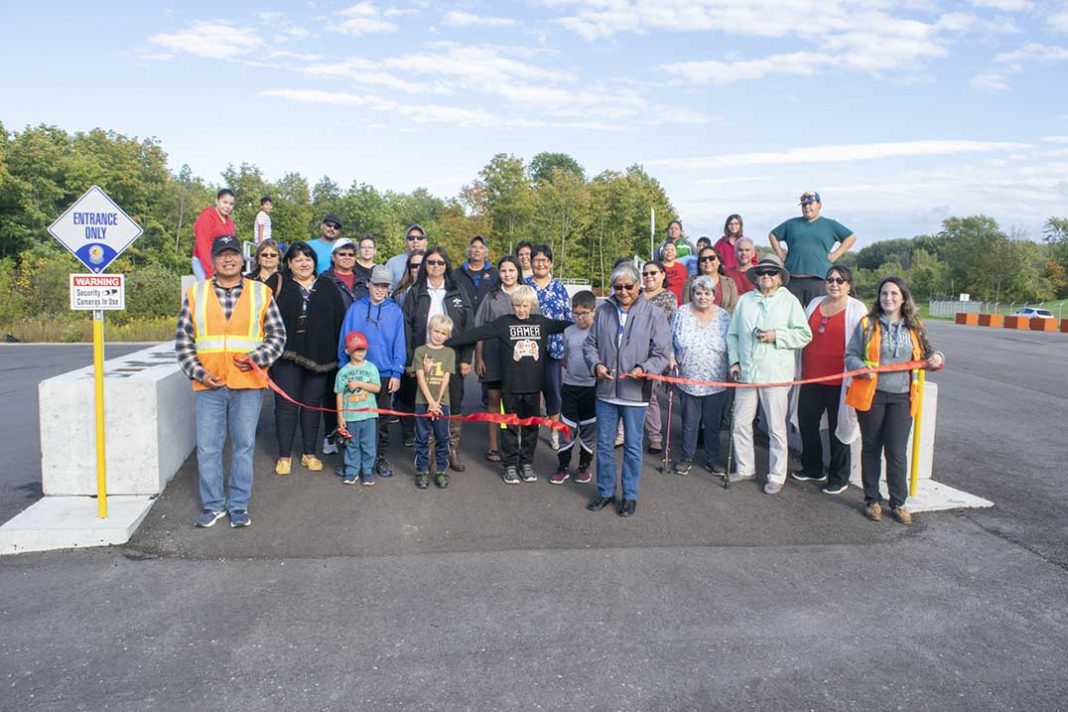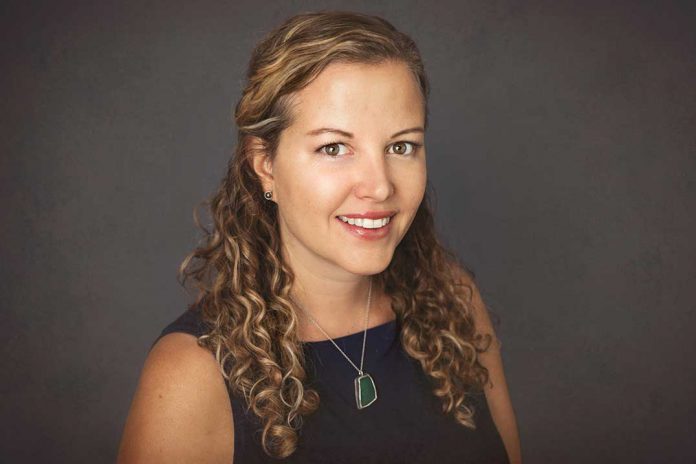AUNDECK OMNI KANING – The community of Aundeck Omni Kaning (AOK) unveiled its new waste transfer station last Wednesday, a project designed to help the First Nation think differently about its waste products and encourage reusing and recycling waste items.
“This is 20 years in the making, this project,” said transfer station supervisor Alfie Nahwegahbo while giving The Expositor a tour of the new site at its public unveiling on September 25.
Band members were invited to stop by the new $2.1-million facility throughout the day of its open house and tour the many waste receiving stations within the site. The project was funded by Indigenous Services Canada.
At the main entrance is an attendant’s kiosk on one side and a used goods exchange depot on the opposite side of the driveway. This enables people to drop off their unwanted but functional furniture and household items for others to take home, rather than sending these otherwise-good products to landfill.
“This is part of our Anishinabek ways of looking after our garbage. We’re keepers of the land, we’ve got to protect it,” said AOK Ogimaa-kwe Patsy Corbiere.
“Everybody is going green now. On TV you see the detriments to the environment. With regards to us, living on an island, these things will eventually make it to the waterways. We’re hoping we can reuse some so we’re not throwing them into the landfill and contaminating the Earth,” said Mr. Nahwegahbo.
Behind the swap building is a structure to house hazardous household waste such as paints and aerosols. At the far north edge of the facility are three large areas, one for white-metal appliances, one for rubber tires and a third for scrap metal.
Further to the rear is a structure for housing electronic waste and another area for clean wood scraps. The transfer station also has a separate fenced-off receptacle for used motor oil. Landfill attendants will collect this and transfer it to the container as needed.
The central part of the paved area is an elevated ramp that will enable three to four vehicles at once to dump household waste into one of several bins—one for standard household garbage but many more for dividing recyclables into those matching the same characteristics. This will include bins for No. 1 plastics, No. 2 plastics, cardboard and other standard recyclables.
The recycling component of the plan is a major part of AOK’s push to reduce its carbon footprint. Ogimaa-kwe Corbiere said band staff have been running extensive recycling education sessions for the past four months that have pushed more people towards recycling their waste.
The new transfer station is contracted by Green For Life (GFL) which supplies and hauls the bins for the facility. Mr. Nahwegahbo said the waste will be hauled to the Dodge landfill in Espanola and the recycling will end up at a facility near Blind River.
Until the transfer station opened, AOK contracted its waste disposal to the Northeast Town at a rate of $772 per week. This will mean a loss of some revenues to the Northeast Town but allow for a modest extension of the facility’s life.
“Council was never looking at AOK as a revenue generator; it was more of a good neighbour policy. The landfill is such expensive real estate that we’re content with having no additional garbage coming to it,” said Northeast Town CAO Dave Williamson.
“The real win is they got the transfer station done which is better for the Island. Anything that diverts waste from landfill, we’re interested in,” he added.
Ogimaa-kwe Corbiere said waste disposal workers had been noticing the First Nation’s increased shift towards recycling, something she described as a far cry from when garbage was left to pile up near the highway before AOK built its first landfill.
AOK will be encouraging its users to make trips to the transfer station and reduce their reliance on curbside pickup, though that service will still be offered for those in need such as elders.
AOK elder Georgina Nahwegahbo was among the 35 people who came to the ribbon cutting ceremony in the late afternoon.
“The administration of AOK needs to be commended for their efforts, and the funding bodies. This will create employment,” said Ms. Nahwegahbo. “It seems a little complicated now but I hope in the long run we’ll prove our community is clean and the younger generation will know more about how to properly dispose of things.”
Band councillors Karen McGraw-Shokan and Irene Altiman were also present at the ribbon cutting and shared optimistic thoughts on the future of the community and its waste management.
“It’s going to mean great things for the community. The recycling aspect is a plus with climate change and the environment,” said Councillor McGraw-Shokan.
Following the ribbon cutting, community members were invited to an extensive and delicious feast at the Four Directions Complex to help celebrate the future of AOK’s waste management.
The AOK transfer station will be open three days per week and there will always be an attendant on duty. As of press time, the dates and times have not been finalized.




